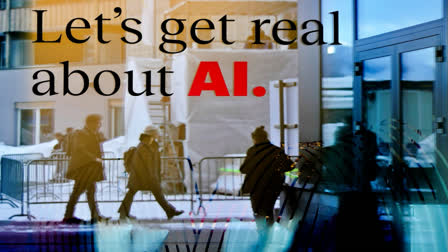London:More executives are feeling better about the global economy, but a growing number don't think their companies will survive the coming decade without a major overhaul because of pressure from climate change and technology like artificial intelligence, according to a new survey of CEOs by one of the world's largest consulting firms, PwC.
The survey of more than 4,700 CEOs worldwide was released Monday as business elites, political leaders and activists descended on the World Economic Forum's annual meeting in Davos, Switzerland, and it showed a mixed picture of the coming years.
Of the executives, 38% were optimistic about the strength of the economy, up from 18% last year, when the world was mired in high inflation, weak growth, rising interest rates and more.
The CEOs' expectation of economic decline has dropped to 45% from a record-high 73% last year, and fewer saw their company as highly exposed to the risk of geopolitical conflict, according to the PwC Global CEO Survey. That's despite wars in Ukraine and the Middle East, including disruptions to global trade from attacks by Yemen's Houthi rebels on commercial ships in the Red Sea.
Even with the improved economic outlook, the challenge isn't close to over, with the World Bank saying last week that it expects the global economy would slow for a third consecutive year in 2024.
The executives, meanwhile, felt worse about the prospects for their companies' ability to weather big changes. The survey shows 45% of the respondents were worried that their businesses wouldn't be viable in a decade without reinvention, up from 39% last year.
The CEOs say they're trying to make changes, but they are running up against regulation, a lack of skills among workers and more.
"Whether it is accelerating the rollout of generative AI or building their business to address the challenges and opportunities of the climate transition, this is a year of transformation," Bob Moritz, global chairman of PwC, formerly known as PricewaterhouseCoopers, said in a statement.
Artificial intelligence was seen as both a way to streamline business operations and a weakness. Nearly three-quarters of the executives said "it will significantly change the way their company creates, delivers and captures value in the next three years," PwC said.
